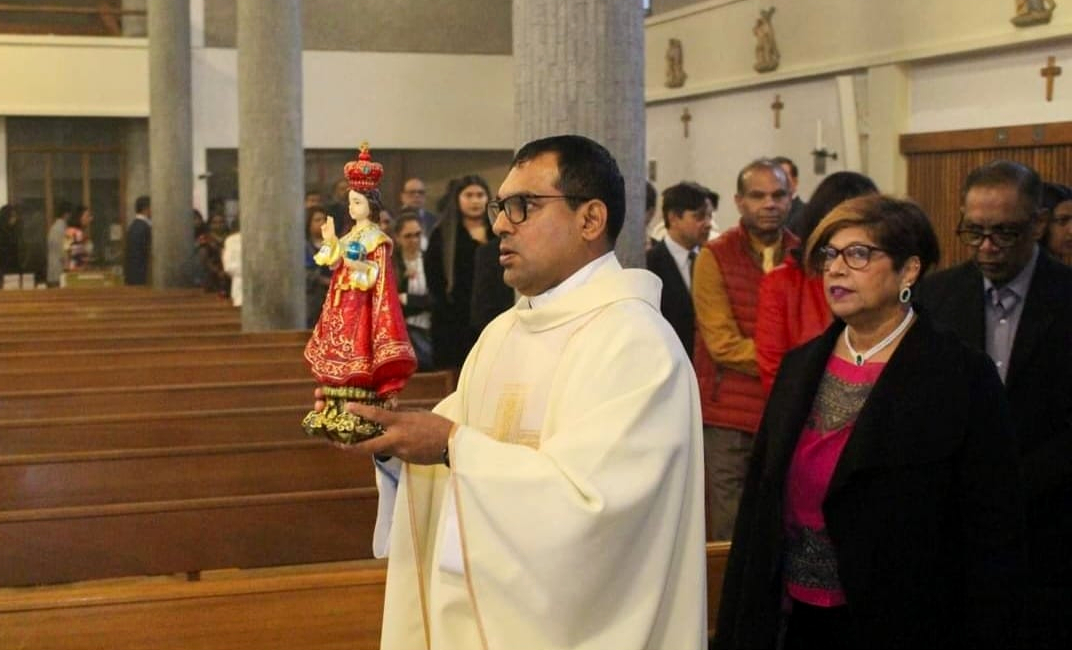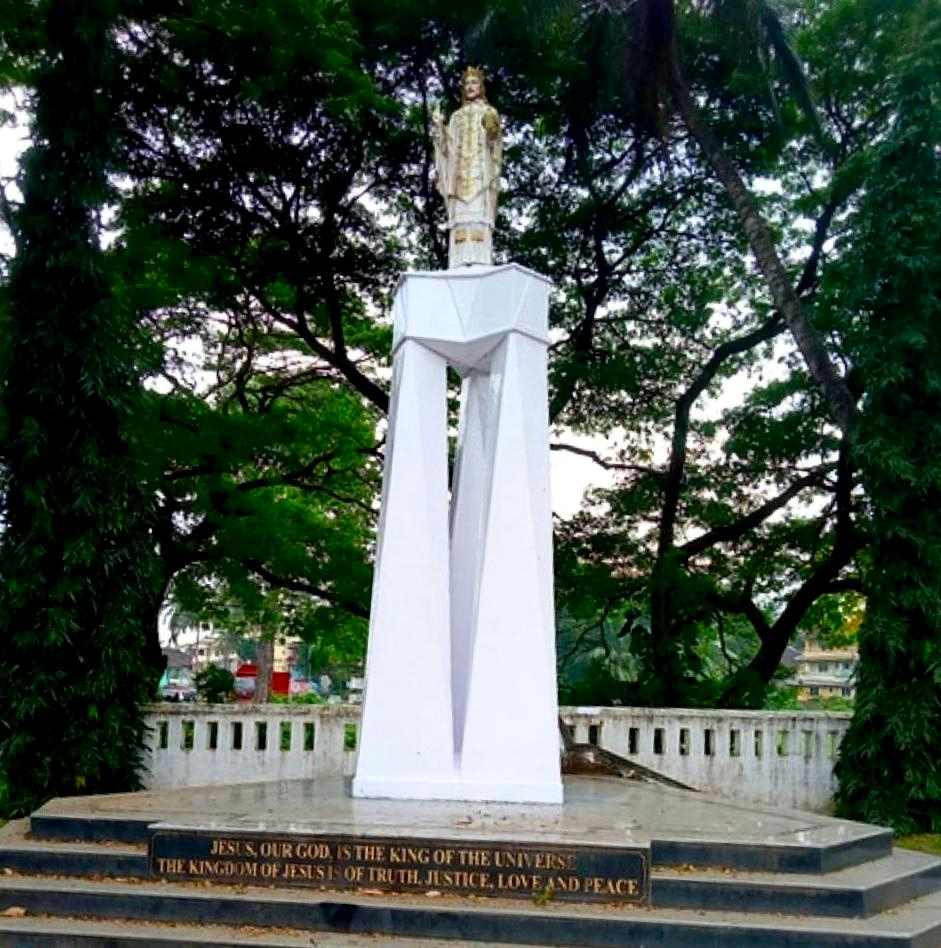
A file photo of Fr Feroz Fernandes carrying the statue of the Infant Jesus as members of the Colva Union UK take part in a procession to mark the Annual Feast of Infant Jesus in London.
LONDON
For many Goans hailing from Colva and settled in the UK, a much-anticipated event is the celebration of the Colva Fama with traditional fervour. Such has been the attachment to their village that the statue of Christ the King outside the Colva Church was installed by Goans who had emigrated from East Africa to the UK.
For nearly half a century, the Colva Union UK has been annually celebrating the Feast of Infant Jesus in London with a Mass and a get-together. This celebration takes place shortly after the Colva Fama.
When contacted, former presidents of Colva Union UK Saby Fernandes and Joe Vaz recalled fond memories of the Fama while residing in Colva and said they were keen to continue this fervour in the UK.
MEMORIES OF FAMA IN COLVA
Stating that the Colva Fama was more than just a festival, Saby Fernandes said it was a cherished tradition that tied family, faith, and community together. “My grandmother would give each of us six siblings a small ‘miller’ (piggy bank), where we saved every 10-paise and rupee we got,” recalled Saby.
“When the Fama arrived, the money saved was our treasure, used to buy balloons, hot chana, and sweet treats like Kaddio Boddio from the fair.”
Saby recalled that preparations in those days would begin early.
“We would clean and paint the house and dress up in new clothes and shoes. Family and neighbours came together to prepare for the event. We kids additionally loved the excitement of helping catch a piglet (Leitao) for the feast and bringing fresh toddy from the toddy-tapper for the traditional Sanas,” said Saby.
“On the day itself, we would wait for hours in line, all for that special moment to kiss the statue of the Infant Jesus, after which we’d spend time at the fair and watch a Tiatr in the evening. I also fondly remember being an angel for the Salve and later, as a youth, serving as an Irmão confraria during the Novenas.”
Joe Vaz also shared fond memories of the Fama in Colva. “Since I was born in October, my parents kept my second name as Jesus as a part of their devotion to Infant Jesus,” said Joe.
“I remember accompanying my mother to the Church for the early morning Mass at 5.30 am on the Fama, where the statue of Infant Jesus was brought down from the altar, and we would kiss the statue.”
“After Mass, my mum would give me Rs 50 to purchase items from the fair. I would go with friends and neighbours to play games, buy grams and sweets.”
 The Christ the King statue outside the Colva Church was brought by the Goans who emigrated from East Africa to the UK because of their devotion to village. The annual celebration of the Colva Union UK takes place after the Colva Fama.
The Christ the King statue outside the Colva Church was brought by the Goans who emigrated from East Africa to the UK because of their devotion to village. The annual celebration of the Colva Union UK takes place after the Colva Fama.
Joe recalled that friends and relatives were always invited to his home on Fama and that, his mum would prepare a lavish buffet for lunch.
“Sannas and Sorpotel were always prepared a day before, and we were always told off as we children would want to eat it the day prior. A very fond memory is remembering ‘Daada’, who managed a roadside stall selling delicious and hot bhajias just opposite the church, and as soon as the Novenas were over, we would rush to buy them.”
“Later, as I was also in the ‘Confraria’, I would attend this Mass and participate in the procession. People from far and wide, and from different religions, would kiss the statue with great faith.”
“Many people also came to pray for the gift of a child and when the intention was fulfilled, they would return the next year for thanksgiving, and place the child on the altar and pray,” Joe added.
FAMA FERVOUR IN UK
Saby said Goans from Colva who migrated from Africa to the UK took with them the tradition of celebrating Colva Fama, keeping it alive across generations.
“We Colvekars continue to honour this beloved festival in our homes in the UK. We do our best to recreate the celebration as we once did in Colva, gathering our families, cooking familiar dishes, and preserving the vibrant spirit of Fama,” said Saby.
“This year, we will celebrate our 49th Annual Feast of Infant Jesus at Our Lady, Queen of Apostles Church in Heston-London, followed by our traditional dine-and-dance in the church hall, thereby carrying forward our traditions and sense of community with love and pride. Though far from Colva, this celebration brings a piece of home into our hearts and continues to be a resounding success,” Saby added.
For Joe, it has been an amazing journey celebrating the Fama with the friends and neighbours of Colva in the UK.
“Planning and preparation of the Mass and get-together is done months in advance, bringing together committee members who are excited about volunteering and contributing towards the event. Mass is held followed by a dine-and-dance, which has always been a successful and meaningful event for all the Colvekars.”